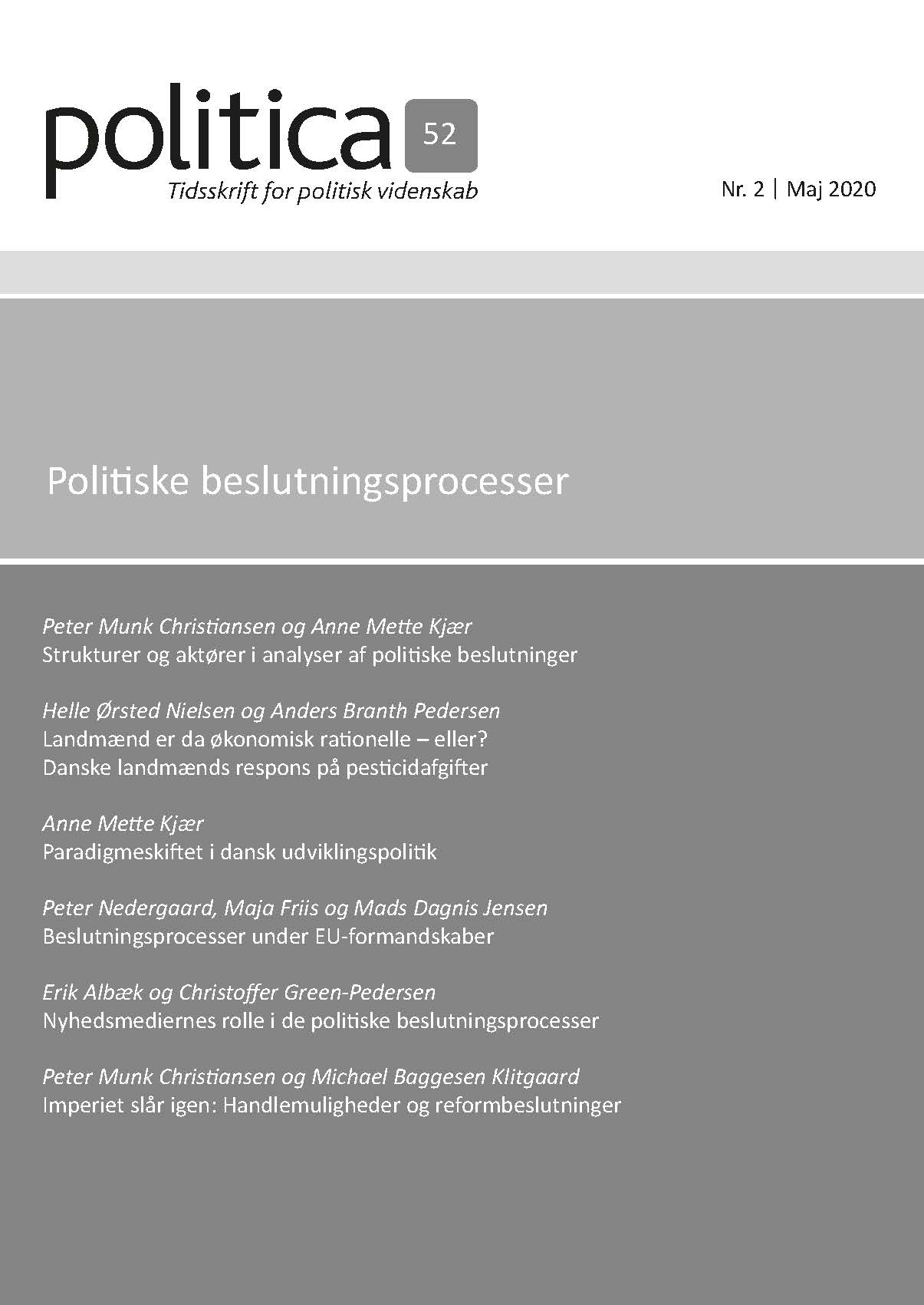Decision processes in agriculture
DOI:
https://doi.org/10.7146/politica.v52i2.130805Nøgleord:
bounded rationality, environmental tax, pesticide policy, policy design, target group behaviorResumé
Bounded rationality theory, first developed by Herbert Simon (1947), is one of the first contributions to political science that explicitly focuses on decision processes and links cognitive science to research on decision processes at the level of both the individual and organisations. In line with more recent behavioral research, bounded rationality theory holds that public policy design should build on a realistic model of human behavior. The article analyzes the decision processes of Danish farmers against their responses to two versions of pesticide taxes implemented in Denmark, one in 1998 and the other in 2013. The two taxes achieved different success rates, although neither version achieved the pesticide reductions predicted by ex-ante models that built on the assumption of farmers as economically rational. We find that farmers’ decision processes are consistent with features of bounded rationality, which may partially explain why the taxes were not as effective as predicted. However, with the second version of the tax adopted in 2013, the tax rate was doubled, which may have prompted farmers to give higher priority to economic objectives, possibly explaining why this recent version of the tax has been more successful.
Publiceret
Citation/Eksport
Nummer
Sektion
Licens
LicensOphavsretten tilhører Politica. Materialet må ikke bruges eller distribueres i kommercielt øjemed.





